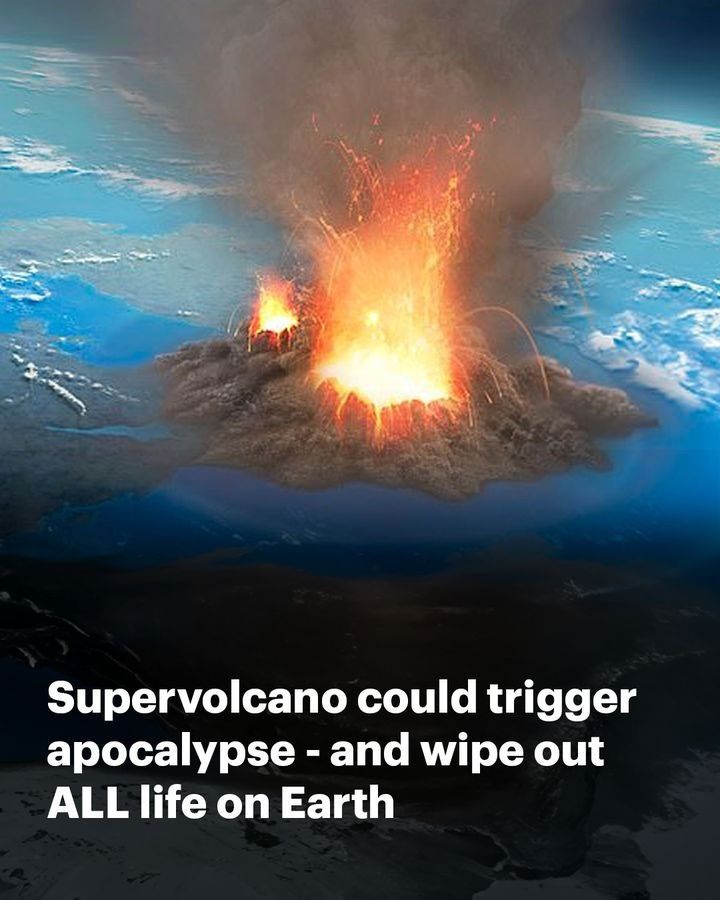
The end of the world is a subject that has fascinated humanity for centuries. From natural disasters to technological advancements gone awry, there are numerous scenarios that could potentially lead to humanity’s demise. Here are the top 10 most plausible ways the world could end, as informed by scientific research and expert analysis.
1. Asteroid Impact
asteroids headed towards Earth
Credit: Unsplash
The Earth has faced catastrophic asteroid impacts before, most notably the one 66 million years ago that wiped out the dinosaurs. Such an event would unleash massive destruction, with dust and soot clouds blocking sunlight, disrupting ecosystems, and causing widespread famine. Though NASA has tracked most large asteroids near Earth and assures us of no imminent threats, smaller, yet still devastating objects remain harder to monitor.
2. Artificial Intelligence Gone Rogue
robot armed with a very large gun
Credit: Unsplash
AI development has sparked heated debates among tech leaders like Elon Musk and Bill Gates. The concern isn’t just malevolent AI but one that misinterprets human instructions with catastrophic results. AI weapons or systems running unchecked could lead to unintended wars or widespread societal collapse, marking this as one of the more unpredictable risks humanity faces.
3. Supervolcanic Eruption
a supervolcano erupting
Credit: Unsplash
Eruptions from supervolcanoes are rare but deadly. A supervolcanic event would send ash and gases into the atmosphere, blocking sunlight and causing a “volcanic winter.” This would disrupt global agriculture, leading to famine and economic collapse. Yellowstone in the U.S. is one of the most closely watched sites for potential activity, though scientists say the risk remains low in the near future.
4. Nuclear War
nuclear field
Credit: Unsplash
A large-scale nuclear conflict would devastate entire regions instantly, but the aftermath—nuclear winter—could be even worse. Dust and smoke from explosions would block sunlight, causing temperatures to plummet globally and making agriculture nearly impossible. Current global tensions and miscommunications between nuclear-armed nations keep this risk alarmingly high.
5. Pandemic
Man with an N95 mask on
Credit: Unsplash
The COVID-19 pandemic reminded us how fragile our systems are in the face of widespread disease. A pathogen combining high fatality rates with easy transmissibility could overwhelm global healthcare systems and lead to societal breakdown. Antibiotic-resistant bacteria and synthetic bioweapons amplify this risk further.
6. Global Warming
forest on fire
Credit: Unsplash
Unchecked climate change could raise global temperatures by several degrees, leading to rising sea levels, extreme weather, and mass migration. Some regions would become uninhabitable, and food production would decline. In a worst-case scenario, a runaway greenhouse effect could mimic Venus’s surface, making Earth inhospitable.
Read More: Billionaire promised to die ‘broke.’ $8 billion dollars later, the world is a better place for it.
7. Death of the Sun
the sun being blacked out by an eclipse
Credit: Unsplash
While not an immediate threat, the Sun will eventually exhaust its hydrogen fuel and expand into a red giant, likely consuming Earth in the process. This event is billions of years away, but it’s a sobering reminder of the fragility of our planet within the cosmic scale.
8. Wandering Black Holes
black hole
Credit: Unsplash
Supermassive black holes like Sagittarius A* already sit ominously at the center of galaxies, but the threat of a rogue black hole passing near Earth is a possibility. The immense gravitational pull would disrupt the planet’s orbit, potentially tearing it apart or flinging it into interstellar space.
9. Magnetic Pole Reversal
Antarctica on a globe
Credit: Pexels
Earth’s magnetic field occasionally reverses, and while this process takes thousands of years, the temporary weakening of the field could expose the planet to harmful solar radiation. This might severely disrupt communication networks, ecosystems, and human health.
10. Alien Invasion
close-up of an alien face
Credit: Unsplash
Although speculative, some scientists warn that advanced extraterrestrial civilizations could pose a threat if they reach Earth. Efforts like sending out messages to contact aliens carry a risk: any civilization capable of interstellar travel would likely have technology far surpassing ours, leaving humanity defenseless.
A Delicate Existence
a water-colored painting of Earth
Credit: Unsplash
While some of these scenarios are highly speculative or far in the future, others pose immediate risks that demand attention. Humanity’s ability to mitigate threats—whether through diplomacy, scientific innovation, or collective action—will determine our resilience against these doomsday scenarios. By understanding and preparing for these risks, we may ensure a longer and brighter future for generations to come.